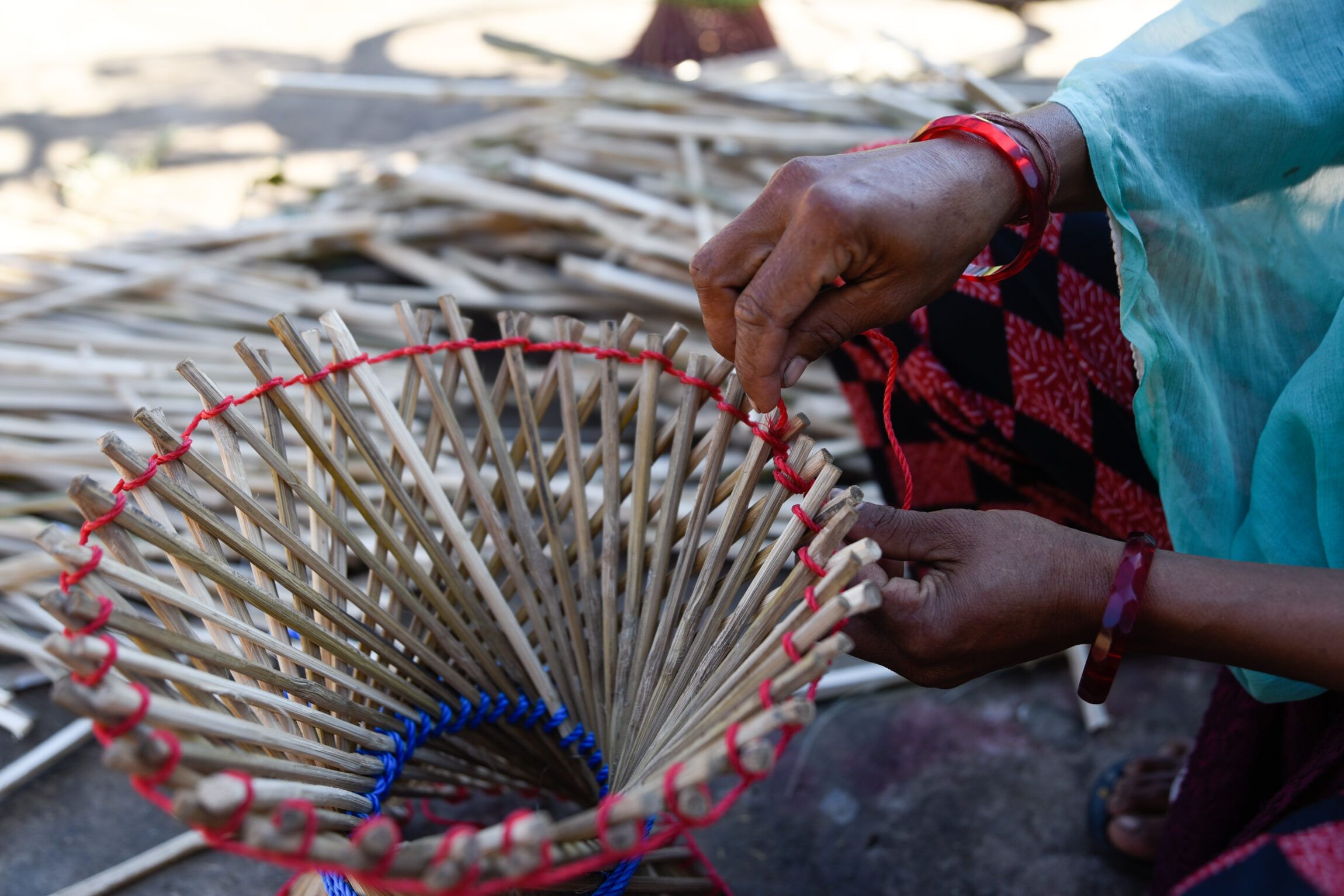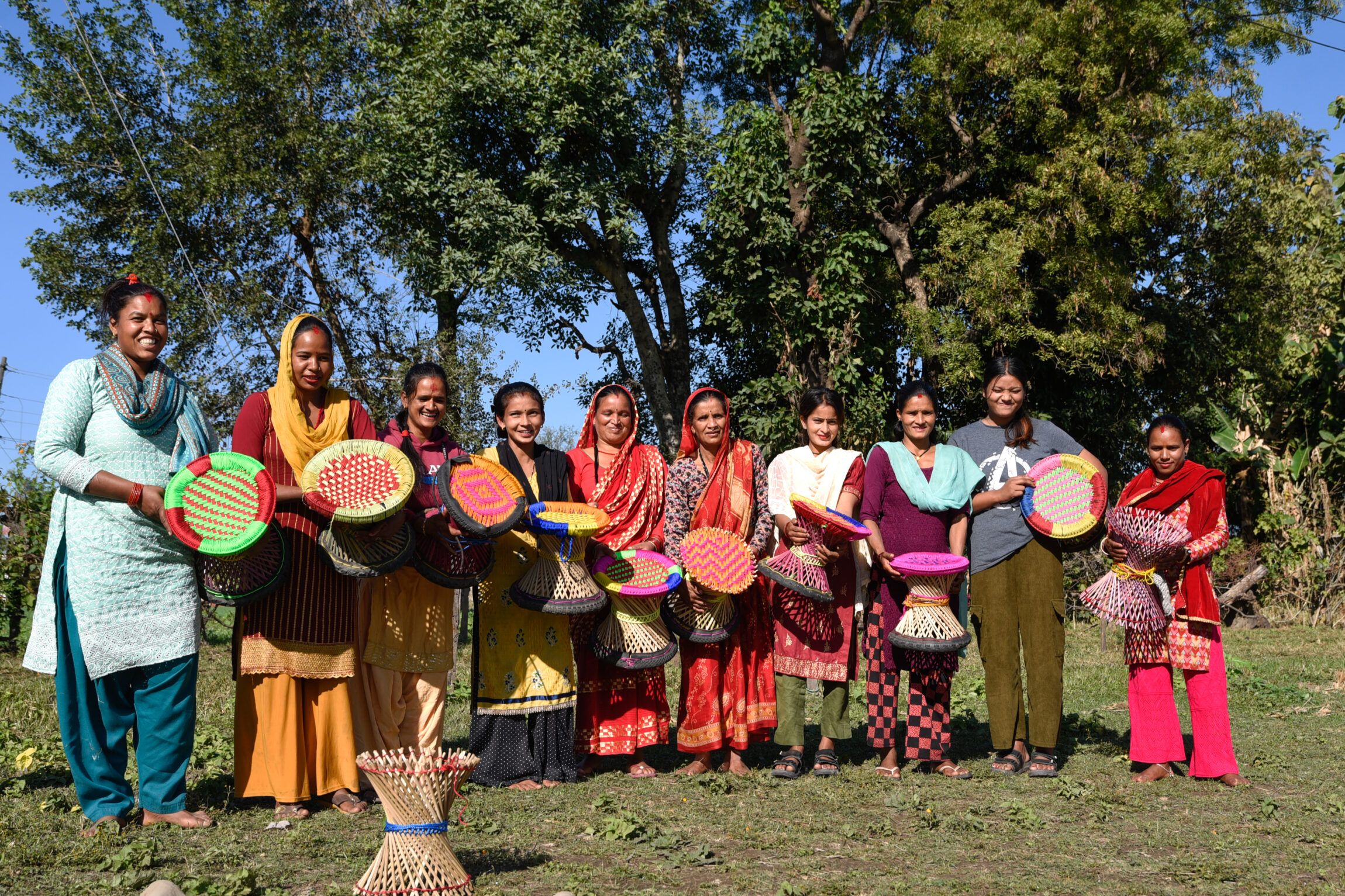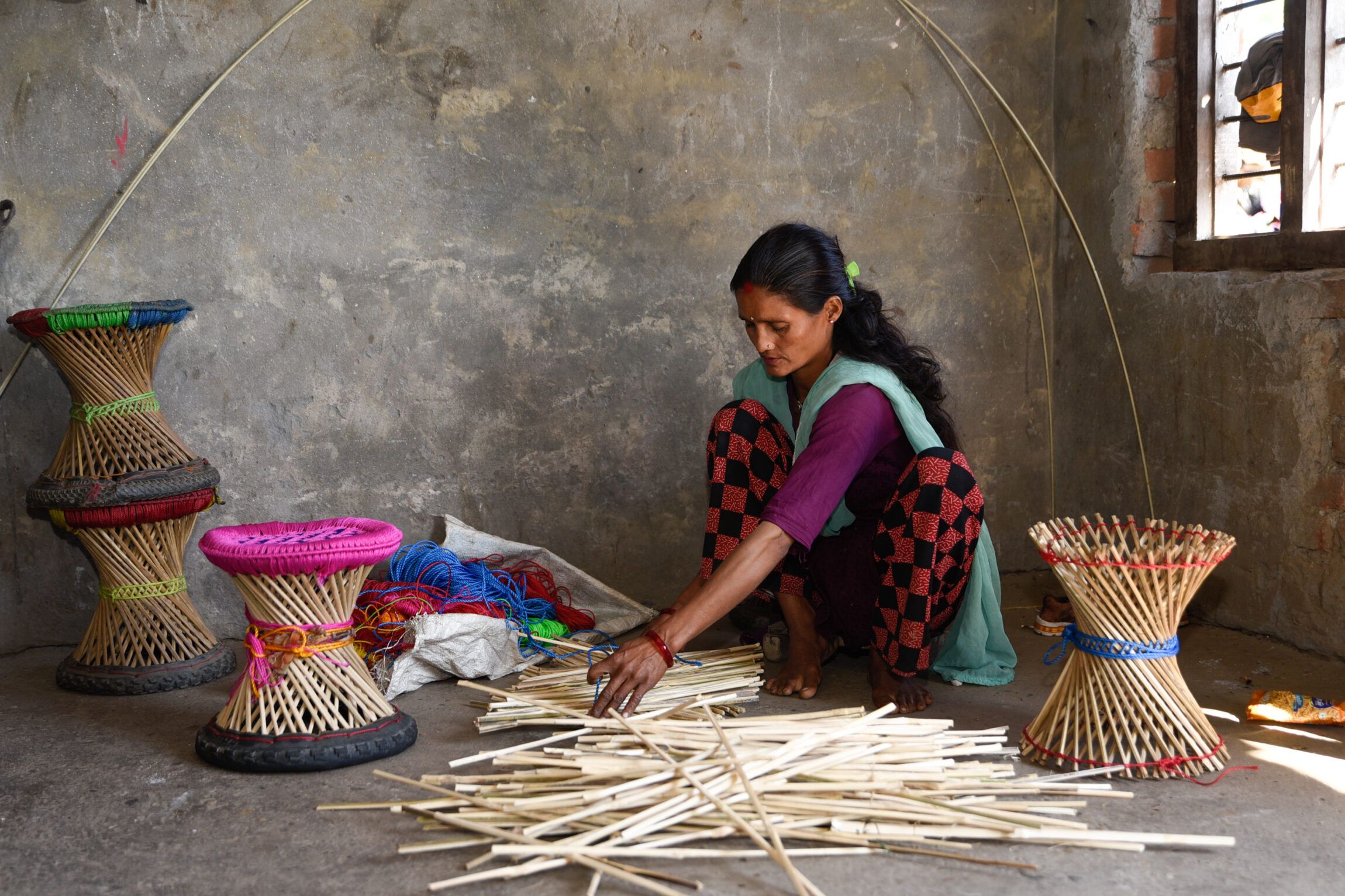In Nepal, a group of Dalit women have found a creative livelihood. Read Hira Sarko’s story about how colorful bamboo chairs have transformed her life.
The blue, red, and green ropes brighten up the bamboo sticks scattered beside Hira. With quick finger movements, she secures a piece of red rope to a ring made of woven bamboo sticks.
“I can make one chair a day, and I sell between 7 and 8 chairs a week,” she says as we sit in the shade outside her home in Bheemdatt in southwestern Nepal.
And it’s easy to see why the bamboo chairs are so popular. The vibrant chairs are decorative, comfortable to sit on, easy to move, and made from sustainable materials.

Opportunities Don’t Come Easy for Dalit Women
Hira lives in Bheemdatt with her husband and their four children. Like most residents of the area, she belongs to the Dalit community.
Dalits, often referred to as “the caste-less,” are considered to exist outside the caste system—a pervasive social hierarchy in Nepal and India. This system places Dalits at the very bottom of the social order, making them frequent targets of discrimination. For Dalit women, the challenges are even greater, with limited access to job opportunities.
In the past, Hira often had to travel long distances to find work.
“It was difficult because I have small children. It also became harder for me to find regular work, and I struggled to make ends meet,” says Hira.
Creating Opportunities Through a Women’s Group
But in the summer of 2023, Hira, along with 15 other women from the area, came up with a great idea: they would start selling handmade bamboo furniture. They formed a group called Amar Jyoti Tole, which translates to “The Eternal Flame” in English. This women’s group has certainly illuminated new paths for its 16 members, including Hira.

Bamboo – A Sustainable Material
With support from DanChurchAid and its partner organisation, Nepal National Social Welfare Association (NNSWA), the women received training in crafting bamboo chairs, as well as materials and tools to kickstart their business.
The 16 women build the chairs using sustainable bamboo wood, binding the structure with ropes and recycled tires.
The bamboo chairs have quickly proven to be a profitable venture, with a strong market for them in the area. Hira shares that she often sells as many chairs as she can make in a week.
“I no longer have to worry about covering my children’s school fees, clothes, and other expenses. Life has become much easier for me now.”Hira Sarko

From Long Travel to Working from Home
Today, Hira no longer needs to leave her family to seek employment. She builds the chairs at home and earns money by selling them in the village.
With the income from the chairs, Hira can save money and cover her children’s school fees and other daily necessities. She now dares to dream big.
“I dream that my children will get an education so they can secure good jobs in the future.”Hira Sarko
About the Caste System in Nepal
The caste system is a cultural framework prevalent in Nepal and other South Asian countries, including India.
This system ranks people based on an ideology that dates back thousands of years. Individuals are born into a specific caste. At the bottom of the hierarchy are approximately 14 percent of Nepal’s population, known as Dalits, or “the caste-less.”
Although it has been illegal to discriminate against individuals based on caste since 1963, the system remains deeply embedded in Nepalese culture. As a result, it continues to influence the lives of many people in Nepal.
Many Dalits struggle to find employment. Traditionally, they have worked in occupations such as tailoring, shoemaking, street sweeping, and other jobs that are often regarded as having low social status. Additionally, Dalits face challenges with unequal pay and other forms of discrimination, especially Dalit women.
About the project
- Title: PAHUCH: Promoting Access to services and resources, Human rights, Uplift voice and reach of individuals and Communities facing Hindrance
- Timeline: January 2022 to December 2026
- Partners:
Equality Development Centre (EDC) Doti
Dalit Women’s Rights Forum (DWRF) Nepal
Feminist Dalit Organisation (FEDO) Nepal: - Amount: 7,383,000 DKK
- DCA Theme: Fight
- People reached: NA
- Donor(s): Danida / Danish Ministry of Foreign Affairs


